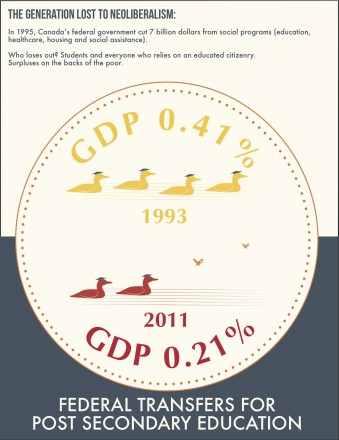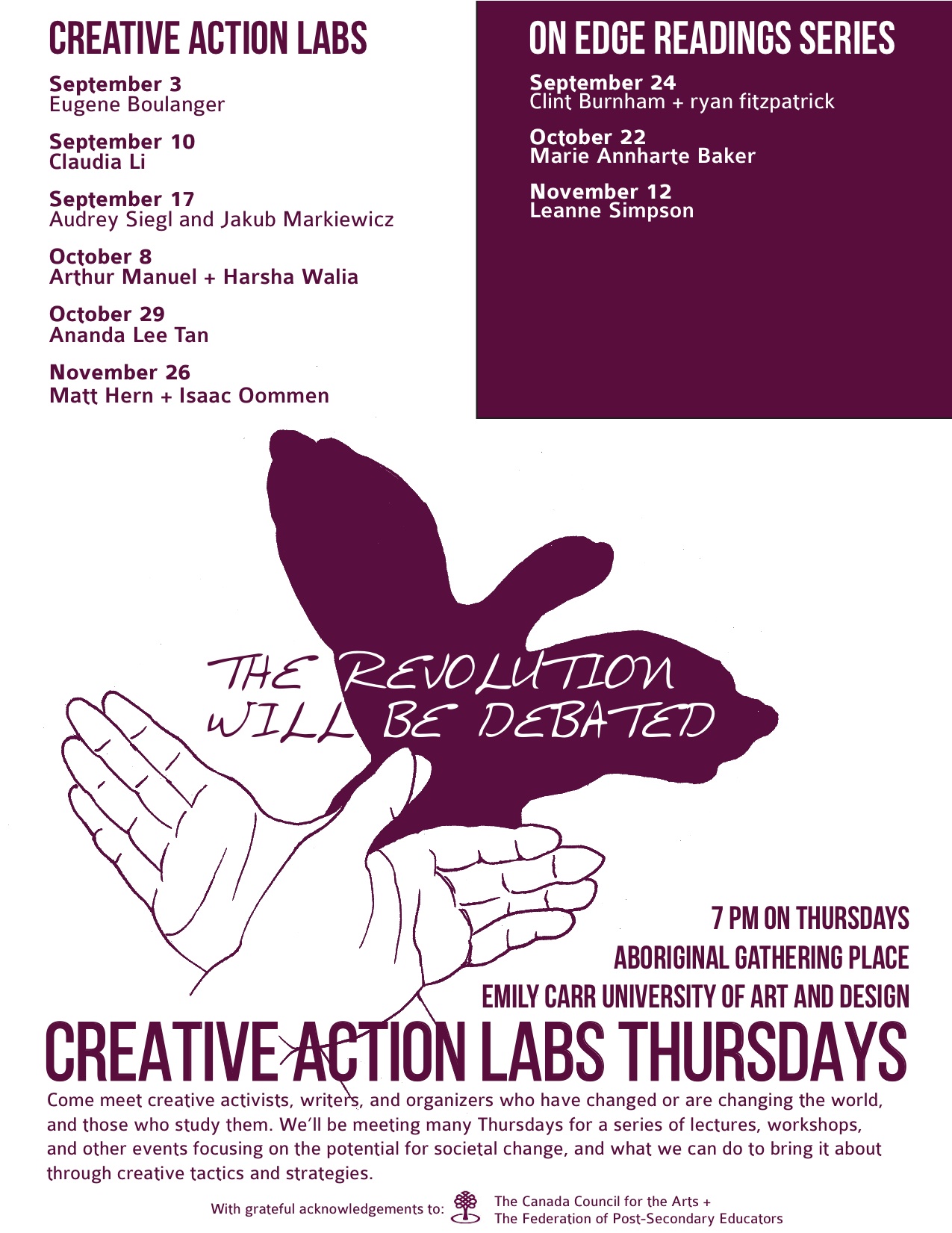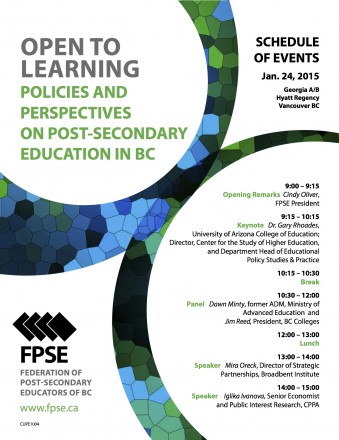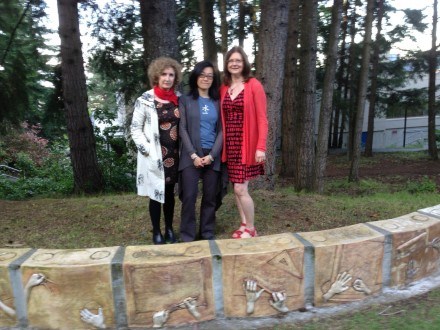Open The Doors


Dear Emily Carr students,
In the wake of the American presidential election, we as faculty have been witnessing higher levels of anxiety, fear, and stress in many of you, who understand the threat that Donald Trump poses to our efforts to build a peaceful society.
We are devastated and disappointed that a candidate who promulgates xenophobia, racism, and misogyny now leads the United States. We are hearing stories of violence, intimidation and silencing tactics on the rise, as those who espouse hate and inequality feel they have more social license to bully others.
We do live in dangerous times.
We also live in times where it is more urgent than ever to exercise our freedoms to speak and act, both individually and collectively, and cultivate wisdom in our communities. The hard won victories of the civil rights movement, the feminist movement, the labour movement, the LGBT movement, and more, matter deeply; they should not and cannot be destroyed by one authoritarian appealing to people’s fear and anger. Commitment to love and equality continues and persists. We see the leadership of Indigenous peoples at Standing Rock currently, courageously coming together to protect water for everyone’s sake. We stand in solidarity with those who welcome diversity, love each other, the land, the water, and life itself, which depends on the health of the watersheds that we all depend on.
It is unusual for us, as a Faculty Association, to make such a statement. But these are unusual times. This election is a wake up call for many, and as such, a teachable moment as well. Those of us in art schools and universities can exercise our academic and artistic freedoms, which are more important than ever. We can take care of ourselves and each other. Be gentle with one another, but also loving, honest, and rigorous as we enter into dialogues with one another and with those who may have supported Trump, or come from families or communities that do. Respect for difference is critical for a shared, peaceful future. Gathered as we are on unceded Coast Salish territories, we have responsibilities to come together for the sake of peace and reconciliation.
As we process this historical moment together, in bewilderment as well as in courage, please know that we are with you in building a just and loving world for everyone. Historical movements in the past have succeeded despite huge odds and obstacles, and our creative spirit, overcoming challenges, strengthens the power of the people.
In solidarity,
The Emily Carr Faculty Association




Everyone who can, please get your vote ON!
Tickled by the Yes Men, we are happy to present the Creative Action Labs this fall.
We’ll hear from artists and activists who are changing the world, followed by workshops to delve into creative tactics and strategies.
If you’re interested in hearing stories from inspiring organizers and thinkers – come out on Thursday evenings! If you are interested in exploring the history of art as direct action and working with others to plan your own interventions – come on Fridays! Workshops will be facilitated by Sean Devlin, starting Sept 18 and running till Oct 23.
Sean Devlin 叶 世民 is a comedian, filmmaker and creative agitator who supports artists and activists in channeling their Trickster spirit. He has been worked as facilitator for communities, academic institutions and non-profits in the Netherlands, Germany, England, Poland, Lithuania, Turkey and Brazil. He currently serves as the Executive Director at ShitHarperDid.com and as an action coordinator and thought stylist at the Yes Men’s Yes Lab (NYU).
For the Friday workshops, we ask that people consider registering together as small working groups (approximately 2 to 6 people a group). Space is limited – please register by emailing creativeactionseries@gmail.com.
Thursday talks are free and open to the public. Here’s the schedule – we kick off the series with Eugene Boulanger on Sept 3:

Dear Faculty Members,
After bargaining sessions on June 2, 3, 4, 5, 8, 10, 11 and 12, we now have a tentative agreement for you to vote on. A summary and more details were emailed out to you.
We are holding a ratification information meeting at 11 am, June 30, in NB 245. Hope to see you there, and if you’re not available, please feel free to contact us with questions by email or telephone.
Thank you for your attention,
your Negotiations Committee
Rita Wong
Jane Slemon
David MacWilliam
Dennis Burke
Leah Squance

We would like to acknowledge the support of Berger-Marks Foundation in helping students and faculty work together on protecting the quality of and access to public post-secondary education. Students were able to participate in this conference thanks to the Berger-Marks Foundation.
We occasionally post news articles on our Facebook page, and encourage you to post links there if you have an article you’d like to share with colleagues. Posts could be about pedagogy, debates and issues in post-secondary education, or events that may be of interest to faculty…
In May 2014, Alex Phillips, Rita Wong, and Peg Campbell participated in the Federation of Post-Secondary Educators’ annual conference. Rita presented on a panel looking at what has happened at special purpose teaching universities (Capilano University, University of the Fraser Valley, Thompson Rivers University, Vancouver Island University, Kwantlen Polytechnic University, and Emily Carr University of Art + Design) since we were designated as such in 2008.

Photo credit: Leah Squance
ACCUTE offers a reality check into post-secondary education in Canada from the perspectives of contract academic faculty: http://accute.ca/2014/01/30/representing-the-new-faculty-majority/
This article in the Chronicle of Higher Education by Richard Moser, “Overuse and Abuse of Adjunct Faculty Members Threaten Core Academic Values,” gives a good overview of the American context, that is relevant for faculty in Canada to consider.